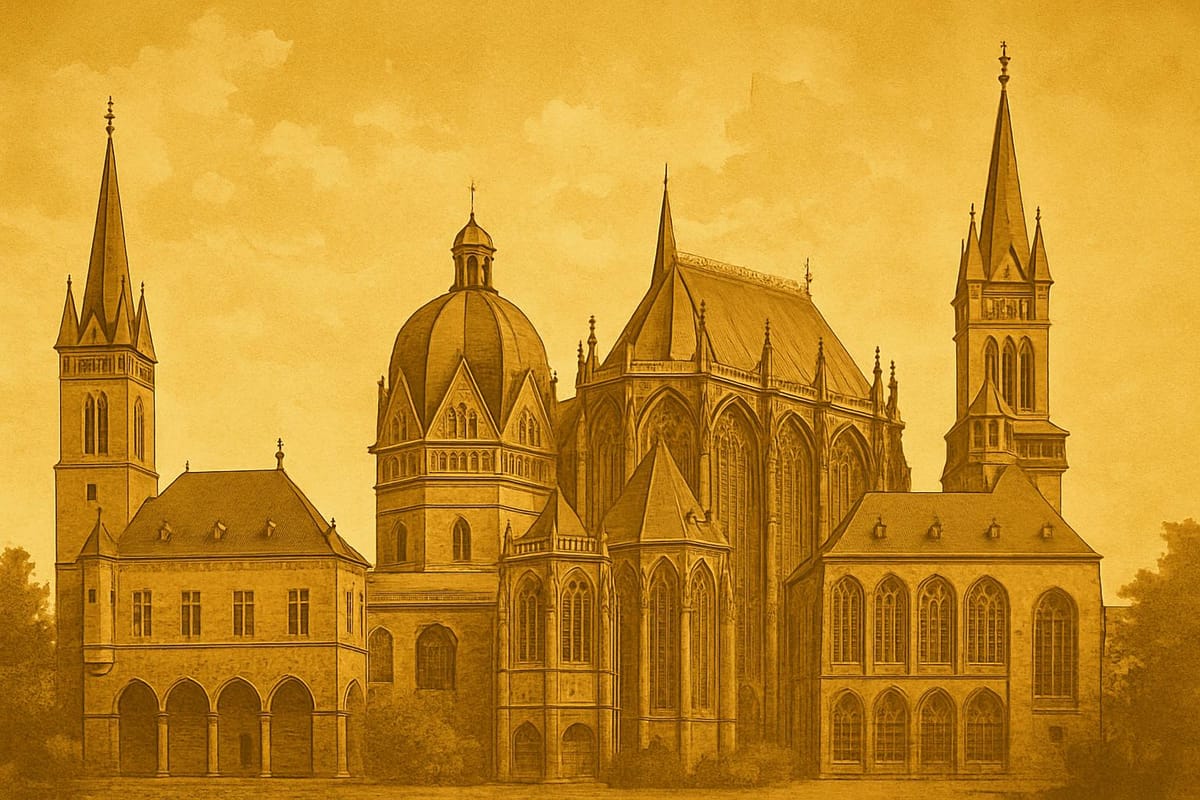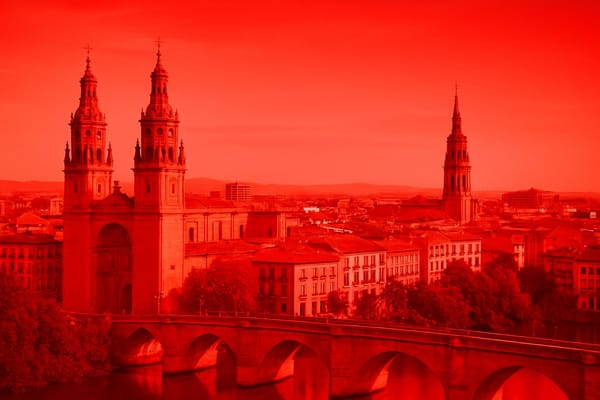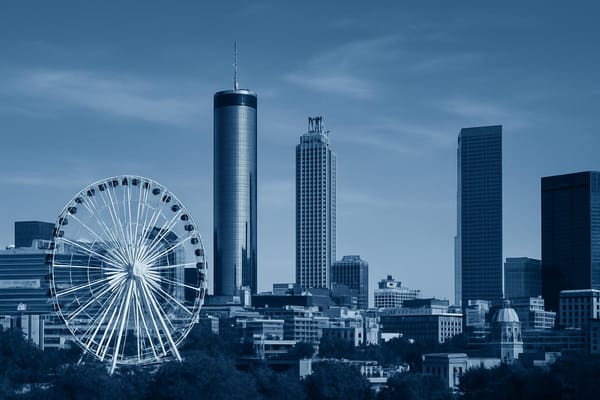Aachen
UNESCO cathedral, Roman thermal baths, medieval old town & famous Christmas market - spa delights

Important things to know about Aachen
Aachen is a compact, historically rich city in Germany's North Rhine-Westphalia region where medieval roots meet modern innovation, creating a distinctive urban character that blends academic energy, industrial know-how, and cross-border openness; located close to the borders with Belgium and the Netherlands, Aachen functions as a regional hub for research, technology, and international exchange, with an economy shaped by advanced manufacturing, service sectors, and a strong startup scene driven in part by the presence of RWTH Aachen University, which contributes to a high proportion of students, researchers, and skilled professionals in the local population. The city’s urban fabric reflects centuries of development, from narrow historic lanes and mixed-use neighborhoods to contemporary districts focused on innovation and sustainable mobility, and its public life is animated by a multicultural populace, lively markets, and year-round academic and cultural programming that reinforce Aachen’s reputation as a dynamic student city and research center. Transport links are robust for a city of its size, offering efficient rail and road connections to the broader Rhine-Ruhr area and neighboring countries, which supports both daily commuting and international business ties. Green spaces, river corridors, and pedestrian-friendly zones contribute to quality of life, while municipal initiatives emphasize energy transition, urban renewal, and smart-city pilots that reflect local commitment to sustainability and future-oriented planning. All told, Aachen presents a compact but internationally minded profile that makes it noteworthy within Germany’s urban landscape for education, innovation, and cross-border cooperation.
Sightseeing hot-spots in Aachen
Aachen is a compact city with a rich imperial past, and at the heart of its sightseeing appeal stands the Aachen Cathedral, the jewel of the city and one of the most spectacular medieval churches in Europe. Built by Charlemagne in the 8th and 9th centuries, the octagonal Palatine Chapel and its golden mosaics make the cathedral an unforgettable experience for anyone who loves history, architecture, or photography. Designated a UNESCO World Heritage site, the cathedral houses the impressive Coronation Chapel, the Shrine of Charlemagne and a treasury filled with medieval reliquaries and liturgical art that draw visitors year-round.
Wandering from the cathedral leads naturally into Aachen’s atmospheric old town where you can admire the ornate façade of the Aachen Rathaus and stroll across the lively market square. The neoclassical Elisenbrunnen fountain and its sulfurous springs hint at the city’s long-standing role as a spa destination, while narrow cobbled lanes reveal charming boutiques, cafés, and bakeries selling the local gingerbread, Printen. Museums, theaters and seasonal markets add variety to the sightseeing itinerary, making visit Aachen rewarding whether you’re interested in medieval craftsmanship, culinary souvenirs, or contemporary cultural events.
For relaxation after a day of exploring, the Carolus Thermen spa complex showcases the thermal waters that have defined Aachen since Roman times, offering pools, saunas and panoramic relaxation areas. Outdoor lovers will enjoy brief walks to the city’s parks and riverbanks, and those keen on day trips will appreciate Aachen’s proximity to the Benelux borders, making it a convenient base for short excursions. With a compact layout, walkable sights and a blend of imperial grandeur and cozy local charm, Aachen delivers memorable sightseeing and plenty of Aachen attractions to discover.
Hotels to enjoy in Aachen
Aachen is a compact, historic city where hotels in Aachen range from chic boutique stays to well-known international chains, offering options for every traveler. Many Aachen hotels are clustered around the city center and the UNESCO-listed Aachen Cathedral, making it easy to explore the medieval old town on foot. Visitors seeking relaxation often choose accommodation near the Carolus Thermen, while business travelers favor hotels close to the exhibition grounds and the Aachen Hauptbahnhof for quick transport links to Cologne, Düsseldorf and the Netherlands. Whether you prefer a luxury suite with modern amenities, a cozy family-run pension with local character, or budget-friendly rooms that prioritize location, the variety of options ensures comfortable stays within moments of cafés, historic sites, and the vibrant market square.
Choosing the right accommodation in Aachen can enhance your experience by prioritizing proximity to key attractions and local flavors. Book early during events like the Aachen Christmas Market or trade fairs to secure the best rates and room types; look for hotels advertising free Wi-Fi, breakfast included and convenient check-in hours to simplify travel. Many properties highlight bicycle rental or parking, ideal for day trips into the Eifel region, and multilingual staff who can recommend walking routes to the Rathaus and the cathedral treasury. By comparing guest reviews and focusing on central locations, travelers can find a memorable stay that blends historic charm with modern comfort in the heart of Aachen.
Restaurants to try in Aachen
Aachen boasts a vibrant scene of restaurants in Aachen where history and modern flavors meet, making the restaurants of Aachen, Germany a must-try for visitors and locals alike. Around the Aachen cathedral and the old town, you’ll find a mix of cozy taverns serving traditional German fare, elegant bistros with contemporary European menus, and international kitchens inspired by Belgian, Dutch and French neighbors. Local specialties and seasonal produce shape many menus, while the presence of a large student community ensures a lively range of budget-friendly and late-night options. From hearty stews and schnitzel to refined tasting menus, the variety available helps define the best restaurants in Aachen for whatever mood or occasion you have in mind.
When choosing where to eat, consider searching for places that emphasize local ingredients and regional wines, or seek out vegan and vegetarian spots that reflect the city's progressive dining trends. Weekends and festival times can be busy, so booking ahead is wise if you want a table at a popular spot or a romantic dinner near historic landmarks. Whether you prefer an intimate meal with seasonal German classics, a lively international restaurant with creative plates, or small cafés serving sweets like Aachener Printen, the Aachen restaurants offer a high-quality culinary experience that appeals to gourmets, families, and students alike, ensuring memorable dining in this charming German city.
Best shopping stops in Aachen
Aachen offers a compact and vibrant experience for anyone interested in shopping in Aachen with a pleasant mix of modern malls and historic Old Town charm. The pedestrianized Aachen city center centers around streets like Adalbertstraße, where familiar high-street names sit alongside independent boutiques and specialty shops. For a concentrated retail experience, Aquis Plaza provides several floors of fashion, electronics and lifestyle stores right by the main station, while winding alleys reveal artisan workshops and stores selling local specialties such as Printen, ceramics and handmade gifts. Shoppers searching for unique souvenirs or designer accents will find small concept stores and vintage shops tucked between cafés, making shops in Aachen ideal for leisurely browsing as much as for targeted purchases.
Seasonal markets and events add extra sparkle to the Aachen shopping scene: spring and summer markets showcase regional producers, while the world-famous Christmas market turns the historic squares into a festive shopping destination full of crafts, local foods and warming beverages. The city’s compact layout means you can easily combine museum visits or a stop at the cathedral with a retail detour, discovering quality gastronomy or small galleries as you move between shops. Whether you prefer the convenience of a shopping center, the character of independent retailers, or the seasonal buzz of open-air markets, Aachen in Germany delivers a varied retail landscape that caters to gift hunters, fashion lovers and cultural travelers alike.
Nightlife highlights in Aachen
Aachen is a vibrant city where Aachen nightlife blends historic charm with a youthful student scene, creating an energetic after-dark atmosphere. From cozy wine bars and atmospheric taverns in the historic center to lively pubs along Pontstraße, the options for evening entertainment are diverse and accessible. Visitors and locals alike can enjoy expertly mixed cocktails, regional beers, and international flavors at a wide range of bars in Aachen and restaurants that stay open late. The proximity of the Aachen Cathedral and the well-preserved old town gives a unique backdrop to nights out, making every stroll between venues feel like part of the experience. Whether you’re seeking a quiet glass of wine or a bustling rooftop terrace, the variety ensures that nightlife in Aachen caters to couples, groups, and solo explorers.
For those who crave music and dancing, the clubs and live venues deliver everything from DJ sets to acoustic sessions, ensuring live music in Aachen remains a major draw. Many venues emphasize local talent, electronic nights, and themed parties that keep the energy high on weekends. If you prefer a more relaxed pace, intimate jazz bars and beer gardens offer conversation-friendly spots where you can sample regional brews and enjoy late-night bites. Good public transport and the compact layout of the city center make hopping between hotspots easy, so experiencing the best of Aachen nightlife - from casual drinks to full-on club nights - is both convenient and memorable.
Getting around in Aachen
Aachen's airport and train situation offers practical options for travelers: while the city does not host a large international airport, it is well served by nearby airfields and a strong rail network centered on Aachen Hauptbahnhof, which provides frequent regional trains and convenient connections to major hubs. For air travel, the smaller Maastricht Aachen Airport and Liège Airport are within easy reach for low-cost and seasonal flights, while the larger international airports of Cologne/Bonn (CGN) and Düsseldorf (DUS) are accessible within about 30–75 minutes by car or a combination of train and shuttle services, making Aachen a practical base for international arrivals. Train travelers benefit from reliable regional services to Cologne, Düsseldorf and cross-border links to Belgium, plus ICE connections via Cologne that open up high-speed links to the wider German network. Combined with efficient local buses, trams and taxi services, Aachen’s transport scene makes transfers between airports and trains straightforward, supporting commuters, tourists and students alike who search for easy, sustainable and cost-effective ways to reach the city.
Culture must-see's in Aachen
Aachen, Germany, sits at the crossroads of history and living culture, and its culture highlights begin with the imposing Aachen Cathedral, a masterpiece commissioned by Charlemagne that crowns the cityscape. Visitors flock to the UNESCO World Heritage site to admire the Palatine Chapel's octagonal plan, glittering mosaics and the medieval Karlsschrein reliquary, while the nearby Rathaus evokes centuries of imperial ceremonies and civic pride. Strolling through the old town reveals layers of Roman, Carolingian and medieval influence, from cobblestone lanes to historic fountains, and the city’s famed thermal baths underscore a long tradition of wellness and social life. Museums like Centre Charlemagne and the Suermondt-Ludwig collection deepen appreciation for Aachen’s artistic legacy, and seasonal events transform public squares into lively stages for music, dance and open-air exhibitions that highlight both local artisans and international talent.
Contemporary Aachen pairs scholarly energy with vibrant popular culture: the presence of RWTH Aachen fuels an international student scene, cutting-edge research and lively nightlife that keeps the city youthful and innovative. Performance venues such as Theater Aachen present opera, ballet and contemporary drama, while festivals like CHIO Aachen, one of the world’s premier equestrian events, attract global audiences and competitors. Culinary culture is equally enticing-sample traditional printen gingerbread and regional cuisine in cafés that blend tradition with modern culinary trends. In winter, Aachen’s atmospheric Christmas market draws visitors to twinkling stalls and mulled wine, creating one of Germany’s most memorable holiday experiences. Together, these cultural threads make Aachen a compact but richly diverse destination for anyone looking to explore the historic and contemporary culture highlights of Aachen, Germany.
History of Aachen
Aachen's long and layered history begins with its thermal springs, which attracted settlement in Roman times and gave the city its Latin name, Aquae Granni. The town's strategic position on trade routes in the Rhineland made it a natural center for baths and early urban life, but its fate changed dramatically with the rise of Charlemagne in the late eighth century. Choosing Aachen as his residence, Charlemagne built the monumental Palatine Chapel, the core of what is now Aachen Cathedral, and turned the city into the political and cultural heart of the Carolingian Empire. Under his patronage the city became a hub for the Carolingian Renaissance, a revival of learning, art and liturgy that left a legacy of manuscripts, architecture and religious prestige. In the High Middle Ages Aachen's importance continued as the site of imperial rites: for centuries German kings and emperors were crowned in the cathedral, a tradition that cemented the city's reputation across Europe and made it a destination for pilgrims and dignitaries.
Throughout the early modern and modern periods, the history of Aachen reflects broader European currents: from the ebb and flow of medieval commerce to its integration into emerging nation-states, the industrial boom of the 19th century, and the devastation and rebuilding after World War II. The discovery and exploitation of coal and the growth of textile and engineering industries transformed Aachen into an industrial center, while its academic tradition was renewed with institutions like RWTH Aachen, fostering technological innovation. The cathedral's designation as a UNESCO World Heritage site underscored the city's cultural value, and its location at the tri-border meeting of Germany, Belgium and the Netherlands shaped a modern identity focused on cross-border cooperation in the Euregio. Today the layered chapters of Aachen's past-from Roman spa town to imperial capital, from wartime ruin to European hub-are visible in its streets, monuments and institutions, making the city a compelling case study in continuity and change in the heart of Germany.



